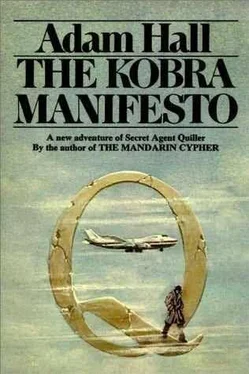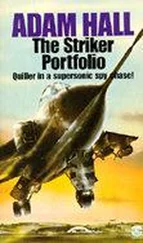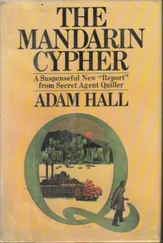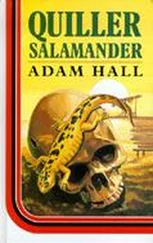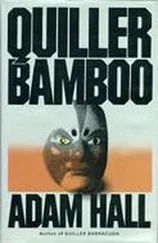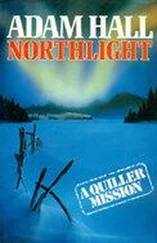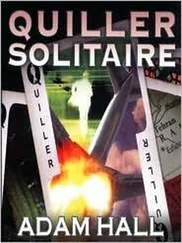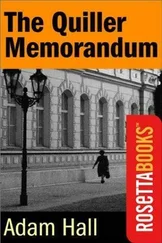I supposed they'd cable her: the pretty girl in the twin-set with the sun in her eyes.
'I imagine you know,' I said as I dumped the cup, 'what that particular station is?'
'I don't happen to work in the cypher room, Mr Wexford.'
He was still standing bolt upright in the middle of the office, perhaps wondering if he could get me arrested for anything.
'Good point,' I said. 'For your information it's the secret log designation for No. 10 Downing Street and the special facilities request I'm making will go direct to the Prime Minister's secretary. For Christ's sake,' I said reasonably, 'I'm not asking for troops or a destroyer or anything, so let's get it over with, shall we?'
He stood there for another five seconds and then went back to his desk.
'You intelligence people are a damned nuisance,' he said and picked up the intercom phone. 'Give me mat number again — the signals number.'
So I gave it to him and he got on to the cypher room and I waited till he'd told the operator what was wanted, then. I said: Tell them they can get a message through to Q-15, Asian theatre, till you shut this place up and go. With your permission, of course.'
He began talking into the phone again.
'Who was it?' the girl asked me.
'What?'
'Who shot Brian?'
'I don't know.'
She was staring at me, through me, with her eyes like ice.
'Jesus Christ,' she said, and her voice faltered, 'I'd give a lot to find out.' She turned away suddenly and went back into the hall and I heard her sobbing out all the four-letter words she could think of, as quietly as she could. Then I remembered that people can look a lot different in photographs, especially if the sun's in their eyes.
'As soon as you can,' the ambassador said, and put down the phone, pinching the bridge of his nose. 'I shouldn't think we've got five thousand,' he said, 'or anything like it. We'll need some for ourselves, to bribe our way through difficulties, if I know anything about it.' He got up and took the portrait of the Queen and Philip off the wall and began fiddling with the knobs on the safe. 'Poor little devil. If you know anything else about this terrible affair, I think it's your duty to tell me.'
'Nothing else. Nothing at all.'
He swung the door of the safe open and turned to look at me for a moment, his eyes weary.
'I suppose he was mixed up in some sort of intelligence work too, was he? That's why they — ' he shrugged with one hand, and didn't finish.
'It'll be easier all round,' I said, 'if he's remembered as the second cultural attache. Full stop.'
The driver shook his head and said no good, no good, so I got in and gave him five hundred dels in denominations of fifty and told him he was my driver for the rest of the day and I wanted to go to the Royal Cambodian Hotel just as fast as he could do it. It was between the US Embassy and the Presidential Palace and we had to make a detour round the evacuation zone near the Bassac River, where three or four hundred Marines were protecting the operation.
The ambassador had only been able to let me have a couple of thousand so I'd have to go easy with it. Most of the services were breaking down in the city and there didn't seem to be much of a future, so that hard cash was the only remaining key to a lot of things.
The hotel looked abandoned when we got there but I found a last-ditch skeleton staff in the foyer with a French-speaking Eurasian supervising at the desk.
'J'ai un ami chez vous — Monsieur Erich Stern. II n'est pas parti, j'espere?'
He slid a perfectly-manicured finger down the page of the register, glancing up as the sound of light bombardment began vibrating in the air, then glancing down again.
'Monsieur Stern est toujours la, m'sieur. Suite 9. Vous voulez lui telephoner, ou — '
'Plus lord. D'abord, je voudrais une chambre pour moi-meme.'
He gave me Number 91, asked about luggage, and glanced a second time at my clothes without comment. My passport said 'press correspondent' and that explained a lot of things in a place like this, including the bloodspots and the bandage on my wrist they'd given me in Rome and the fact that I wanted a room at the best hotel in Phnom Penh when most people were getting out of the place in a hurry. I'd had to leave my suitcase behind when I'd got the lift in the helicopter because the pilot had been bringing troops in and the weight was critical.
He called for a boy to take me to my room.
A different vibration was in the air and I identified it as the throb of chopper blades as a new wave came across to the airport from one of the carriers.
'Please?'
I followed the boy. The lift wasn't working because some of the power lines had been hit last evening, which explained the candles everywhere in bowls and saucers. We took the stairs and the boy gave little bows on each landing and pointed upwards again. There was a suite on each floor and that was why I'd asked for a room on the ninth: Erich Stern was the immediate objective and I was going to stay as close to him as I could; but I didn't think there was any point in trying to see him about getting a girl out of the country until I'd got a few answers worked out in my head because this place had become a red sector for me when that bullet had made a hit: the 'scope-sight must have passed across my image as the sniper had lined up his shot.
There was a certain degree of trauma still lingering, on that subject. The ideal mission is when London knows enough to brief you on the whole thing: objective, access, timing, so forth. The minute you leave Whitehall you know where you're going and you know what you've got to do and all you 'have to work out is how to do it. It doesn't often happen like that. Most of the time it breaks suddenly, and nearly always with a burst of signals from an agent-in-place or a Curtain embassy or just someone who's bust a code and exposed an operation the Bureau might want to penetrate: there isn't always time to London-brief an executive and work out his access before he's sent in. This was the kind of thing that was happening now: I was being pitched into the mission with London only one jump ahead of me at any given phase, and no director in the field. We don't mind that: it keeps us flexible; but it's dangerous because there hasn't been enough ground-work done and you can suddenly find yourself sitting in the cross-hairs of a telescopic rifle sight without even knowing it and that was why I'd hit the ground and bounced into a zig-zag run from cover to cover among the tables and the palm-trunks till I was inside the restaurant with nothing to show for it but grazed hands and the trauma that lingered in me now.
The bee could have come for me.
'One more please, yes?'
The boy pointed upwards, 'Yes.'
We climbed again.
One of the answers I had to work out concerned Chepstow. I didn't know who he was: I only knew what he'd been doing. He could have been in Liaison 9 like Steadman in Nice or he could have been nosing around for DI6 or any one of the overseas intelligence branches with or without the Bureau's knowledge. But somewhere along the one the Bureau had got a fix on him. It hadn't been done here in Phnom Penh while the forces of the Khmer Rouge were threatening the city: it had been done in London while the dustmen's strike was on. Egerton or one of the other directors had picked it up in a pub or a club or a Turkish bath: a word here, a word there, a raised eyebrow and a glance away, the talk becoming quieter and suddenly more disciplined. Erich Stern was in Phnom Penh and the second cultural attache was surveying him: was this of any use? It was. Egerton had gone to a telephone and within two minutes the signal was filed on readiness for Q-15, Rome, to be received against the distant background of arpeggios.
Читать дальше
